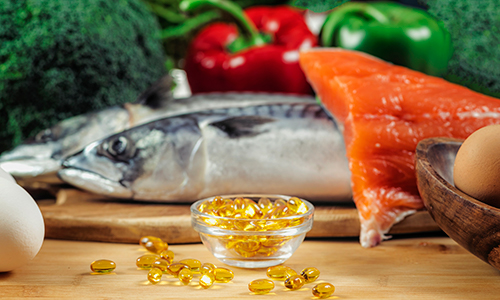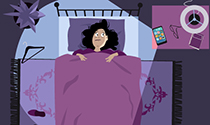|
|
|
|
| |
Vitamin D’s day in the sun |
|
| |
|
|
|
| |
The topic of vitamins and supplements is fraught, tied up with commercialism, the anti-vax movement, and diet culture. A “couldn’t hurt, might help” mindset is especially dangerous: some interfere with medication, and high doses can be toxic. |
|
| |
|
|
|
| |
There’s little evidence that daily vitamins or supplements—treated as food rather than medicine by the FDA—provide health benefits, unless you have a deficiency. |
|
| |
|
|
|
|
|
| |
An estimated 40 percent of Americans, however, are vitamin D deficient, especially those with darker skin since melanin interferes with the vitamin’s production. And a 2017 study concluded that vitamin D helped prevent acute respiratory tract infections, making the vitamin of special interest when COVID-19 emerged. |
|
| |
|
|
|
|
|
|
|
|
|
| |
Does vitamin D play a role in COVID-19 prevention or treatment? |
|
| |
|
|
|
|
|
|
|
|
|
|
|
|
|
|
|
|
|
|
|
| |
|
|
|
| Anthony Fauci, director of the National Institute of Allergy and Infectious Diseases, says most immune-boosting supplements do nothing, but he does recommend vitamins C and D. |
|
|
|
| |
|
|
|
|
|
|
|
|
|
| |
| |
|
|
| |
(iStock.com/chendongshan) |
|
| |
|
|
|
|
| |
|
|
|
|
|
| |
A stray Flintstones daily vitamin is less likely to cause an emergency, but the high-dose weekly supplements meant to combat severe deficiency pose a real threat. Like medicine, keep vitamins out of paws’ reach. |
|
| |
|
|
|
|
|
|
|
| |
| |
|
|
| |
Restless:
The pandemic is causing many of us to lose sleep.
|
| |
|
|
|
| |
Carbon:
Environmental impact from you, me, and cryptocurrency.
|
| |
|
|
|
|
|
|
| |
|
|
|
|
|
| |
| |
Visit the Alumni & Friends website for stories, podcasts, and other features, curated for you on UChicago Review. Create an account for a more personalized experience.
Sign up to receive µChicago monthly. |
|
|
|
| |
|
|
|
|





